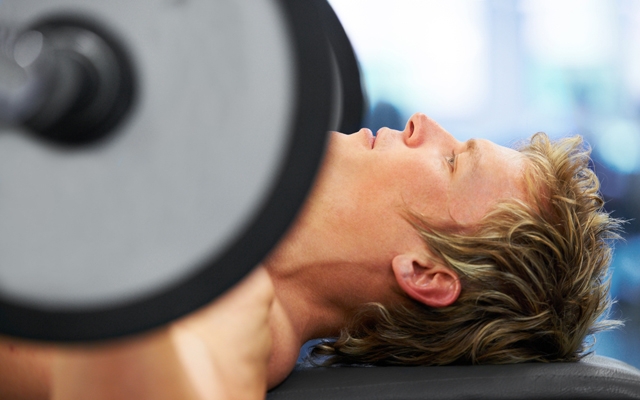Forget dieting, some people need to gain weight. If that’s you, chances are you’ve been eating well but have such a fast metabolism that your body doesn’t retain the pounds. So how can you bulk up? Unlike unhealthy junk food, you need to eat food high in both calories and nutrients to build muscle and girth. But don’t expect it to happen fast. To maintain your health, you should only try to gain one pound per week.
How many calories should you eat?
In order to gain weight, you have to take in more calories than you body expends in energy. One pound of bodyweight is equal to 3500 calories, so by increasing your daily caloric intake by 500 calories per day you can gain one pound a week. Keep in mind that the average adult male needs 2400–2800 calories every day to maintain weight. Make sure you don’t increase your intake by over 1000 calories a day, as it can cause severe gastrointestinal issues.
What should you eat?
To find out how many calories you need per day when bulking up, multiply your body weight by 17.5. (For example, a 160-pound man should consume 2800 calories) Your calories should consist of 15–20% protein, 20–35% fats and 45–65% carbohydrates.
Proteins
Normally it’s healthy to consume 0.8 grams of protein daily for every pound of bodyweight. When bulking up, try to consume 1.5 grams (to convert to calories, multiply by 4). Good protein options include: lean meats like lamb, chicken, pork and beef, clams, cod, eggs and almonds.
Fats
When bulking, you want to eat half a gram of fat for every pound of bodyweight. Make sure you’re only consuming healthy fats like monounsaturated and polyunsaturated fats rather than trans or saturated fats. Foods with healthy fats include: olives, avocados, nuts and seeds. Try foods rich in omega-3 or omega-6 fatty acids for increased brain function and growth development.
Carbs
Carbohydrates should make up the rest of your diet. Try to consume more whole grain products, which have fiber and other nutrients. Starchy vegetables, like potatoes and sweet potatoes, squash, corn, peas and yams, are high in vitamins A, B and C. Dried fruits are a good on-the-go snack that are very high in carbohydrates.
When should you eat?
When you’re trying to gain weight, consistency is important. Try to eat between five and six meals a day, and don’t go more than four hours without a small meal. It’s important to have a post-workout meal to build back up the nutrient resources that were depleted. Throughout the day, drink water constantly, since water is stored in the muscles and helps with growth.
When you can’t eat anymore
Eating so many calories, especially when you’re not used to it, can be hard. When you feel like you can’t eat anymore, try going for a walk to work up an appetite. The sugar in fresh fruit can also stimulate hunger. Fluids fill your stomach; so try not to drink half an hour before or after a bigger meal.
In addition to eating well, make sure you’re sleeping plenty, at least 8 or 9 hours since that’s the time when most muscular growth occurs. Also be sure to exercise at least three times a week focusing on lifting and limiting cardio.












